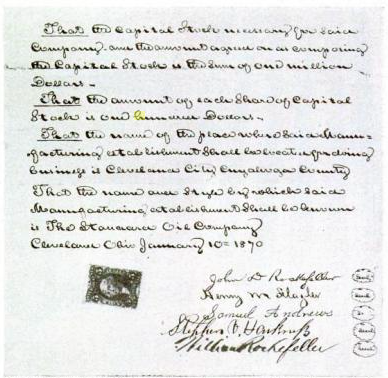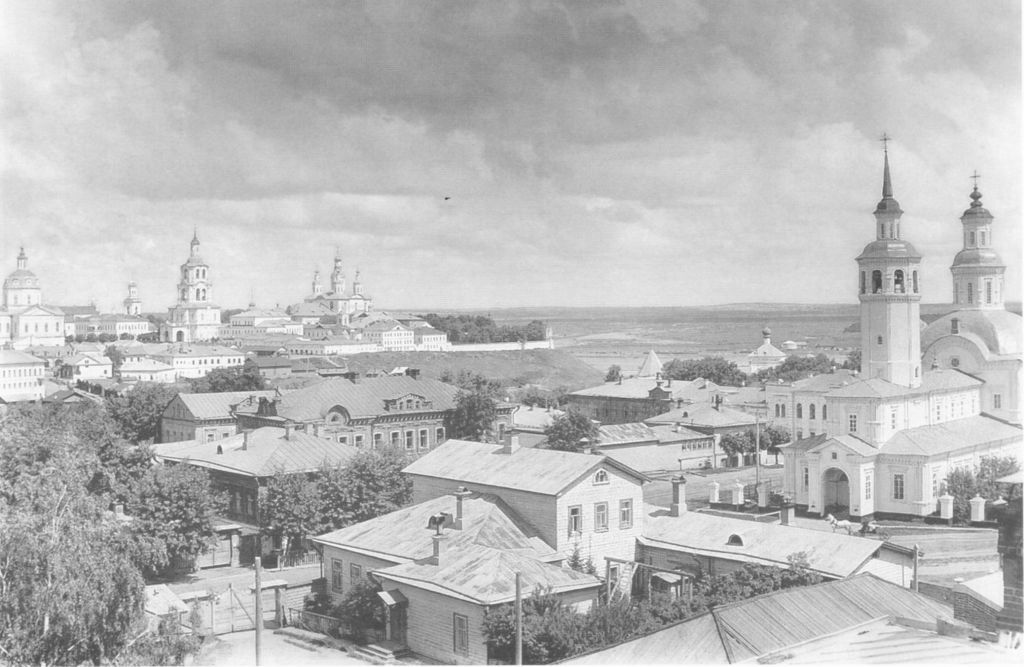|
National Organization Of Russian Muslims
The National Organization of Russian Muslims (NORM) is an organization of the Russian Muslims, founded in 2004 on the basis of Russian Muslim communities of Moscow (Banu Zulkarnain), Yoshkar-Ola (Tsaryovokokshaysk Community of Russian Muslims), Omsk and Almaty. History On 11–13 June 2004 in Omsk the first founding congress was held with the initiative of Vadim Sidorov (Harun ar-Rusi). Abu Talib (Anatoliy Stepchenko) from Omsk, who converted to Islam in 1990, was elected as a chairman. In 2005 the Russian Muslims’ communities of Saint-Petersburg and Rostov-on-Don also merged with THE NORM. The members of the Organization created the Cultural-educational center “Proponents of Tradition and Unity”, which aimed to increase Dawah among ethnic Russians and interactions with other ethnic-national Muslim communities. There was a shift from acute controversy to cooperation with the former priest of Russian Orthodox Church, now well-known Islamic scholar Vyacheslav Polosin. At the ... [...More Info...] [...Related Items...] OR: [Wikipedia] [Google] [Baidu] |
Russian Muslims
Although Islam is a minority religion in Russia, Russia has the largest Muslim population in Europe. According to US Department of State in 2017, Muslims in Russia numbered 14 million or roughly 10% of the total population. According to a comprehensive survey conducted in 2012, Muslims were 6.5% of Russia's population. See also the results' 'main interactive mapping'' and the static mappings: The Sreda Arena Atlas was realised in cooperation with thAll-Russia Population Census 2010 (Всероссийской переписи населения 2010) thRussian Ministry of Justice (Минюста РФ) the Public Opinion Foundation (Фонда Общественного Мнения) and presented among others by the Analytical Department of the Synodal Information Department of the Russian Orthodox Church. See: However, the populations of two federal subjects with Islamic majorities were not surveyed due to social unrest, which together had a population of nearly 2 million, ... [...More Info...] [...Related Items...] OR: [Wikipedia] [Google] [Baidu] |
Murabitun World Movement
The Murabitun World Movement is an Islamic movement founded by its current leader, Abdalqadir as-Sufi (born as Ian Dallas), with communities in several countries. Its heartland is Spain. The number of its followers may amount, according to one estimate, to around 10,000. Background The name Murabitun derives from the name of the Almoravid dynasty. The founder of the Murabitun World Movement is Abdalqadir as-Sufi, a convert to Islam born Ian Dallas in Ayr, Scotland, in 1930. He met his first Shaykh, Muhammad ibn al-Habib, in Meknes around 1968, and was made a ''muqaddam'' and given the title "as-Sufi". Ibn al-Habib said to him, “You can stay here with me, and something might happen. But go to England and see what will happen”. Abdalqadir as-Sufi travelled in Europe and America, held talks, and published works such as ''The Way of Muhammad'' ... [...More Info...] [...Related Items...] OR: [Wikipedia] [Google] [Baidu] |
Islamic Organizations Based In Russia
Islam (; ar, ۘالِإسلَام, , ) is an Abrahamic monotheistic religion centred primarily around the Quran, a religious text considered by Muslims to be the direct word of God (or '' Allah'') as it was revealed to Muhammad, the main and final Islamic prophet.Peters, F. E. 2009. "Allāh." In , edited by J. L. Esposito. Oxford: Oxford University Press. . (See alsoquick reference) " e Muslims' understanding of Allāh is based...on the Qurʿān's public witness. Allāh is Unique, the Creator, Sovereign, and Judge of mankind. It is Allāh who directs the universe through his direct action on nature and who has guided human history through his prophets, Abraham, with whom he made his covenant, Moses/Moosa, Jesus/Eesa, and Muḥammad, through all of whom he founded his chosen communities, the 'Peoples of the Book.'" It is the world's second-largest religion behind Christianity, with its followers ranging between 1-1.8 billion globally, or around a quarter of the world's po ... [...More Info...] [...Related Items...] OR: [Wikipedia] [Google] [Baidu] |
Extremism
Extremism is "the quality or state of being extreme" or "the advocacy of extreme measures or views". The term is primarily used in a political or religious sense to refer to an ideology that is considered (by the speaker or by some implied shared social consensus) to be far outside the mainstream attitudes of society. It can also be used in an economic context. The term may be used pejoratively by opposing groups, but is also used in academic and journalistic circles in a purely descriptive and non-condemning sense. Extremists' views are typically contrasted with those of moderates. In Western countries for example, in contemporary discourse on Islam or on Islamic political movements, the distinction between extremist and moderate Muslims is commonly stressed. Political agendas perceived as extremist often include those from the far-left politics or far-right politics, as well as radicalism, reactionism, fundamentalism, and fanaticism. Definitions Peter T. Coleman and ... [...More Info...] [...Related Items...] OR: [Wikipedia] [Google] [Baidu] |
Articles Of Association
In corporate governance, a company's articles of association (AoA, called articles of incorporation in some jurisdictions) is a document which, along with the memorandum of association (in cases where it exists) form the company's constitution, and defines the responsibilities of the directors, the kind of business to be undertaken, and the means by which the shareholders exert control over the board of directors. Articles of association are very critical documents to corporate operations, as they may regulate both internal and external affairs. Articles of incorporation, also referred to as the certificate of incorporation or the corporate charter, is a document or charter that establishes the existence of a corporation in the United States and Canada. They generally are filed with the Secretary of State in the U.S. State where the company is incorporated, or other company registrar. An equivalent term for limited liability companies (LLCs) in the United States is articles ... [...More Info...] [...Related Items...] OR: [Wikipedia] [Google] [Baidu] |
Maliki
The ( ar, مَالِكِي) school is one of the four major schools of Islamic jurisprudence within Sunni Islam. It was founded by Malik ibn Anas in the 8th century. The Maliki school of jurisprudence relies on the Quran and hadiths as primary sources. Unlike other Islamic fiqhs, Maliki fiqh also considers the consensus of the people of Medina to be a valid source of Islamic law. The Maliki school is one of the largest groups of Sunni Muslims, comparable to the Shafi`i madhhab in adherents, but smaller than the Hanafi madhhab. Sharia based on Maliki doctrine is predominantly found in North Africa (excluding northern and eastern Egypt), West Africa, Chad, Sudan, Kuwait, Bahrain, Qatar, the Emirate of Dubai (UAE), and in northeastern parts of Saudi Arabia.Jurisprudence and Law – Islam Reorienting the Veil, University of North Car ... [...More Info...] [...Related Items...] OR: [Wikipedia] [Google] [Baidu] |
Islamic Theology
Schools of Islamic theology are various Islamic schools and branches in different schools of thought regarding ''ʿaqīdah'' (creed). The main schools of Islamic Theology include the Qadariyah, Falasifa, Jahmiyya, Murji'ah, Muʿtazila, Batiniyya, Ashʿarī, Māturīdī, and Aṯharī. The main schism between Sunnī, Shīʿa, and Kharijite branches of Islam was initially more political than theological, but over time theological differences have developed throughout the history of Islam. Divinity schools in Islam According to the ''Encyclopaedia of the Qurʾān'' (2006), "The Qurʾān displays a wide range of theological topics related to the religious thought of late antiquity and through its prophet Muḥammad presents a coherent vision of the creator, the cosmos and man. The main issues of Muslim theological dispute prove to be hidden under the wording of the qurʾānic message, which is closely tied to Muḥammad's biography". However, modern historians and sch ... [...More Info...] [...Related Items...] OR: [Wikipedia] [Google] [Baidu] |
Ashari
Ashʿarī theology or Ashʿarism (; ar, الأشعرية: ) is one of the main Sunnī schools of Islamic theology, founded by the Muslim scholar, Shāfiʿī jurist, reformer, and scholastic theologian Abū al-Ḥasan al-Ashʿarī in the 9th–10th century. It established an orthodox guideline based on scriptural authority, rationality, and theological rationalism. Al-Ashʿarī established a middle way between the doctrines of the Aṯharī and Muʿtazila schools of Islamic theology, based both on reliance on the sacred scriptures of Islam and theological rationalism concerning the agency and attributes of God. Ashʿarism eventually became the predominant school of theological thought within Sunnī Islam, and is regarded as the single most important school of Islamic theology in the history of Islam. The disciples of the Ashʿarī school are known as Ashʿarites, and the school is also referred to as the Ashʿarite school, which became one of the dominant theological s ... [...More Info...] [...Related Items...] OR: [Wikipedia] [Google] [Baidu] |
Salafi
The Salafi movement or Salafism () is a reform branch movement within Sunni Islam that originated during the nineteenth century. The name refers to advocacy of a return to the traditions of the "pious predecessors" (), the first three generations of Muslims, who are believed to exemplify the pure form of Islam. Those generations include the Islamic prophet Muhammad and his companions, whom he himself taught (the ); their successors (the ); and the successors of the successors (the ). In practice, Salafis maintain that Muslims ought to rely on the Qur'an, the and the (consensus) of the , giving these writings precedence over later religious interpretations. The Salafi movement aimed to achieve a renewal of Muslim life and had a major influence on many Muslim thinkers and movements across the Islamic world. Since its inception, Salafism has been evolving through the efforts of numerous Islamic reformers, whose interpretations have spread within various regions. The Salafist ... [...More Info...] [...Related Items...] OR: [Wikipedia] [Google] [Baidu] |
Kirov, Kirov Oblast
Kirov ( rus, Ки́ров, p=ˈkʲirəf, a=Ru-Киров.ogg) is the largest city and administrative center of Kirov Oblast, Russia. It is located on the Vyatka River in European Russia, 896 km northeast of Moscow. Its population was 518,348 in 2020. Kirov is a historical, cultural, industrial, and scientific center of Priural'e (territory on the west side of the Ural Mountains); place of origin for Dymkovo toys; the most eastern city founded during the times of Kievan Rus'. The city also had the names of Khlynov (, from 1457 to 1780), and Vyatka (, until 1934). History Principality and republic The native Slavic tribe of Central Russia and Volga regions, the Vyatichis (also called Viatichi), mixed here with the Novgorod Slavs, Novgorodian Slovenes and Finno-Ugric languages, Finno-Ugric people. According to the medieval chronicles the first Russian settlements in the area appeared in 12th century. Kirov itself was first mentioned (as Vyatka) for the first time i ... [...More Info...] [...Related Items...] OR: [Wikipedia] [Google] [Baidu] |
Cape Town
Cape Town ( af, Kaapstad; , xh, iKapa) is one of South Africa's three capital cities, serving as the seat of the Parliament of South Africa. It is the legislative capital of the country, the oldest city in the country, and the second largest (after Johannesburg). Colloquially named the ''Mother City'', it is the largest city of the Western Cape province, and is managed by the City of Cape Town metropolitan municipality. The other two capitals are Pretoria, the executive capital, located in Gauteng, where the Presidency is based, and Bloemfontein, the judicial capital in the Free State, where the Supreme Court of Appeal is located. Cape Town is ranked as a Beta world city by the Globalization and World Cities Research Network. The city is known for its harbour, for its natural setting in the Cape Floristic Region, and for landmarks such as Table Mountain and Cape Point. Cape Town is home to 66% of the Western Cape's population. In 2014, Cape Town was named the best place ... [...More Info...] [...Related Items...] OR: [Wikipedia] [Google] [Baidu] |
.png)
.jpg)






